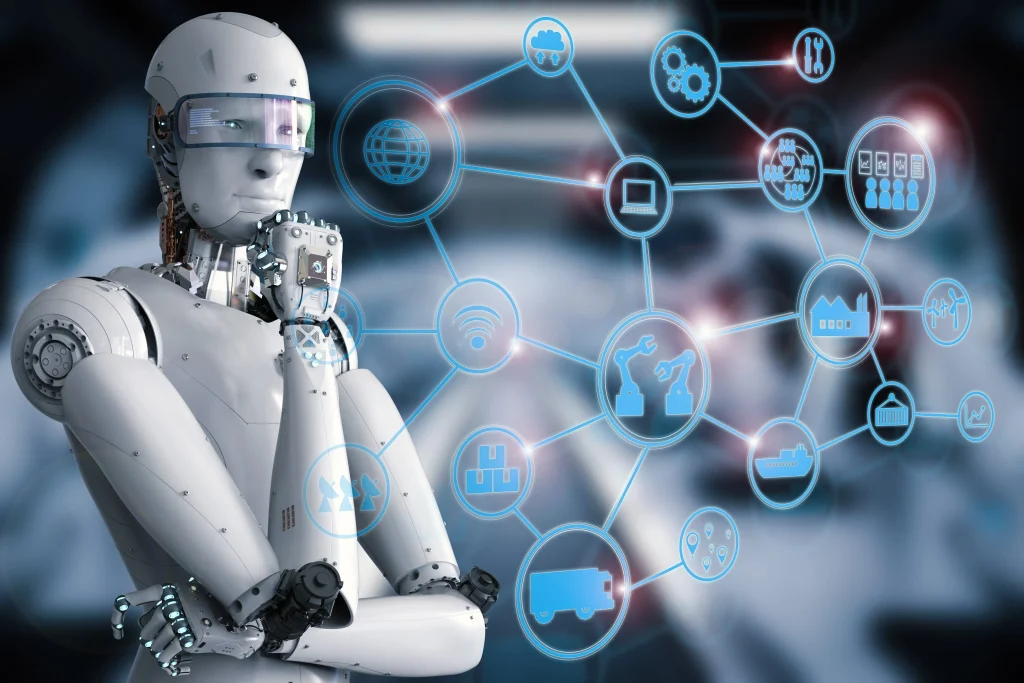Artificial Intelligence and Technology are shaping the way we live, work, and innovate, driving smarter choices in business and daily routines. The AI impact on the future is evident in smarter recommendations, faster data-driven decisions, and increasingly capable devices. From AI in daily life to the future of work with AI, technology trends and AI, and how AI changes careers, these threads connect people, processes, and products. Understanding these trends helps you anticipate change, sharpen your skills, and align your career with intelligent systems that amplify human judgment. This introductory overview is crafted for web audiences, balancing engaging storytelling with SEO-friendly clarity.
A broader lens reveals that this field centers on intelligent machines, data-driven insights, and cognitive computing that assist rather than replace human decision-makers. Terms like smart automation, digital intelligence, machine learning-enabled tools, and automated analytics map the landscape in ways that search engines understand. These synonyms reflect the same core shifts—automation of routine tasks, personalized experiences, and smarter systems that collaborate with people.
Artificial Intelligence and Technology: Reshaping the Future of Work and Daily Life
The convergence of Artificial Intelligence and Technology is not a distant abstraction—it’s evident in smarter customer recommendations, faster data-driven decisions, and devices that anticipate our needs. This is the AI impact on the future playing out in real time, as machine learning, natural language processing, computer vision, and robotics come together to power everyday tools. When we consider AI in daily life, the line between digital assistants, smart home ecosystems, and enterprise intelligence blurs, making intelligent systems a common companion in work and home environments.
Beyond gadgets, this convergence is redefining how we work and learn. The future of work with AI involves augmenting human judgment with data insights, automating repetitive tasks, and enabling new collaboration models. People will need to adapt to roles that blend analytics with domain expertise, design, and governance. The ongoing shift is also a reminder of how technology trends and AI are reshaping workflows, business models, and competitive expectations, while the question of how AI changes careers remains central for individuals planning long-term, resilient paths.
Preparing for an AI-Driven World: Skills, Ethics, and Lifelong Learning
Preparing for this AI- powered era starts with digital literacy and moves toward deeper capabilities in data thinking, programming concepts, and AI ethics. Investing in practical projects that pair domain knowledge with data-informed decision-making helps bridge theory and application. Learning how AI tools integrate into your field today—the AI in daily life applications and the way these tools influence decision-making—builds a foundation for navigating the future of work with AI.
Equally important are the governance, ethical, and societal considerations that accompany rapid technological advancement. Responsible AI design, fairness, explainability, and inclusive practices must guide implementation, while clear governance helps individuals manage privacy, bias, and accountability. By cultivating critical thinking about data usage and embracing lifelong learning, people can stay adaptable as technology trends and AI evolve, ensuring that how we work, learn, and relate to technology remains aligned with human values and broader societal goals.
Frequently Asked Questions
What is the AI impact on the future, and how does AI in daily life reflect the convergence of Artificial Intelligence and Technology?
AI impact on the future is already visible across work, education, and daily life. By combining key capabilities—machine learning, natural language processing, computer vision, and robotics—Artificial Intelligence and Technology enable smarter decisions, personalized experiences, and more efficient operations. In daily life, AI in daily life tools like smart assistants and predictive services illustrate this convergence, while privacy and ethical considerations remind us to balance innovation with responsibility. To prepare, invest in digital literacy and lifelong learning so you can adapt as AI-enabled workflows become the norm.
How AI changes careers in the context of the future of work with AI and evolving technology trends?
AI changes careers by automating routine tasks and expanding roles that require creativity, judgment, and collaboration. The future of work with AI means hybrid positions that blend analytics with design, ethics, and governance, driven by technology trends and AI. Professionals should focus on continuous learning, upskilling in data thinking, programming concepts, and AI ethics, and pursue projects that pair domain expertise with data-informed decision-making. Staying adaptable and collaborating with colleagues who bring diverse perspectives helps you thrive as intelligent systems complement human strengths.
| Aspect | Key Points | Illustrative Impacts |
|---|---|---|
| Convergence of AI and Technology | AI and Technology drive rapid change; everyday life shows smarter recommendations, faster data-driven decisions, and more capable devices. | Better customer experiences; more capable devices in daily life. |
| Core AI Capabilities | Machine learning, natural language processing, computer vision, robotics. | Enables optimization, personalization, and automation across contexts. |
| Organizational Impact | AI helps optimize supply chains, forecast demand, personalize experiences, and accelerate product development. | Productivity gains; new service paradigms; roles blending data science with domain knowledge. |
| Future of Work for Individuals | Automation of repetitive tasks; more time for creative problem solving; roles evolve to hybrid analytics/design/ethics/governance. | Lifelong learning and deliberate upskilling; demand for skills that amplify judgment and adaptability. |
| AI in Daily Life | Smart assistants, health nudges, and anticipatory home appliances. | Convenience, efficiency, and privacy considerations; data boundaries to protect users. |
| Education & Learning | Adaptive learning platforms tailor content to pace, strengths, and gaps; interdisciplinary topics like data ethics; emphasize equity. | More accessible, high-quality instruction; real-time feedback guiding progress. |
| Healthcare & Science | Diagnostic imaging, predictive modeling, and decision support become more accurate and scalable. | Improved patient outcomes; privacy, validation across populations, and transparency considerations. |
| Ethics, Governance, Societal Impact | Fairness, explainability, inclusivity; governance to manage risk and accountability. | Aligns innovation with values; safeguards for privacy and bias; responsible deployment. |
| Practical Preparation | Baseline digital literacy; data thinking; programming concepts; AI ethics; collaboration across domains. | Builds resilience and accelerates readiness for evolving tools and workflows. |

